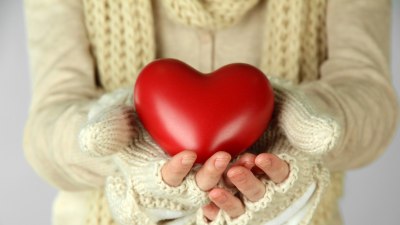How to Survive a Heatwave Without Becoming a Human Puddle
Stay cool, hydrated, and comfortable when temperatures soar to unbearable levels

When the temperature skyrockets and the air feels like a sauna, staying cool becomes a survival skill. Heatwaves can be brutal, draining your energy, making sleep impossible, and turning even simple tasks into a sweaty ordeal. Whether you’re stuck in a city apartment, working outdoors, or traveling in scorching weather, knowing how to beat the heat is essential. Follow these strategies to survive a heatwave without turning into a human puddle.
Hydration is Your Best Defense
During extreme heat, your body loses water rapidly through sweat. Dehydration increases your risk of heat exhaustion and heatstroke, so staying hydrated should be your top priority.
- Drink water constantly: Don’t wait until you feel thirsty—by then, you’re already dehydrated.
- Avoid alcohol and caffeine: These drinks dehydrate you faster.
- Replenish electrolytes: If you’re sweating a lot, drink coconut water or a sports drink to restore lost minerals.
- Eat water-rich foods: Watermelon, cucumbers, and citrus fruits can help keep you hydrated.
Dress Smart to Stay Cool
Your clothing choices can make a huge difference in how much heat you retain. Choose fabrics and colors that help your body stay cool instead of trapping heat.
- Wear loose, light-colored clothing: Dark colors absorb heat, while light colors reflect it.
- Choose breathable fabrics: Cotton and linen are better than synthetic materials.
- Use a cooling scarf or wet bandana: Keeping a damp cloth on your neck or wrists can help lower your body temperature.
Find Ways to Keep Your Home Cool
If you don’t have air conditioning, your home can feel like an oven during a heatwave. Try these tricks to lower indoor temperatures:
- Keep blinds and curtains closed: Sunlight heats up rooms quickly, so block it out during peak hours.
- Use fans strategically: Place a bowl of ice in front of a fan for a homemade air conditioner.
- Sleep with a damp sheet: A slightly wet sheet can create an evaporative cooling effect.
- Take cool showers: Lowering your body temperature before bed can help you sleep better.
Stay Out of the Sun During Peak Hours
From late morning to early evening, the sun is at its strongest. If you can, avoid outdoor activities between 11 AM and 4 PM, when temperatures are at their highest.
- Plan activities for early morning or late evening: The sun is less intense, making outdoor time more bearable.
- Find shaded areas: If you must be outside, stay under trees, awnings, or umbrellas.
- Use sunscreen: Sunburn makes it harder for your body to cool down.
Know the Warning Signs of Heat Illness
Heatwaves can be dangerous, especially for children, the elderly, and those with health conditions. Recognizing the early symptoms of heat-related illness can prevent serious complications.
Signs of heat exhaustion include:
- Heavy sweating
- Dizziness or lightheadedness
- Nausea
- Weakness or fatigue
Signs of heatstroke (a medical emergency) include:
- High body temperature (above 103°F/39°C)
- Confusion or disorientation
- Rapid heartbeat
- Loss of consciousness
If someone is experiencing heatstroke symptoms, seek medical attention immediately and move them to a cooler place.
Sleep Can Be a Challenge in the Heat
When your bedroom feels like a sauna, getting a good night’s sleep is nearly impossible. Try these cooling techniques to make hot nights more bearable:
- Use a fan near your bed: Keep air circulating while you sleep.
- Freeze your pillowcase: Put it in a plastic bag and chill it in the freezer before bed.
- Sleep in breathable fabrics: Cotton pajamas and lightweight sheets help wick away sweat.
Surviving a Heatwave Takes Smart Strategies
High temperatures can be exhausting and dangerous, but with the right precautions, you can stay cool and comfortable. Hydration, smart clothing choices, cooling techniques, and avoiding peak sun hours can make all the difference. The next time a heatwave hits, don’t just suffer through it—use these tips to beat the heat and stay safe.











